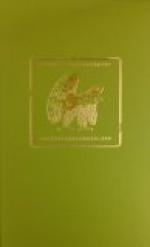Still, having said this, Mr. Bromley did not seem in any hurry to go, but stood holding his hat and waiting for a word from Tisdale to redeem the situation. At last it came. “Is there no other way,” he asked, “than to drag my private affairs into court?”
The attorney gravely shook his head. “You never can tell what a jury will do,” he said. “Less than a prejudice against a witness has swung a decision sometimes.”
Hollis said no more. He went over to his safe and selected a package containing three documents held together by a rubber band. After a hesitating moment, he drew out one, which he returned to its place. The others he brought to the attorney, who carried them to the reading lamp to scan. One was a deed to the last half interest in the Aurora, the one which Weatherbee had had recorded, and the remaining paper was, as Mr. Bromley conjectured, Tisdale’s will; but it contained a somewhat disconcerting surprise. However, the lawyer seated himself and, spreading the paper open on the table, copied this clause.
... “The Aurora mine, lying in an unsurveyed region of Alaska, accessible from Seward by way of Rainy Pass, and from the Iditarod district north by east, I bequeath to Beatriz Silva Gonzales Weatherbee, to be held for her in trust by Stuart Emory Poster for a period of five years, or until development, according to David Weatherbee’s plans, shall have been fully carried out. The profits, above the cost of all improvements and all operating expenses—which shall include a superintendent’s salary of four thousand dollars a year to said Stuart Emory Foster—to be paid in semi-annual dividends to said Beatriz Silva Gonzales Weatherbee.”
“Stuart Emory Foster,” repeated the lawyer meditatively, putting away his fountain pen. “You evidently have considerable confidence in his engineering skill, Mr. Tisdale.”
“Yes.” His voice mellowed, but he regarded the attorney with the upward, watchful look. “I have confidence in Stuart Emory Foster in every way. He is not only one of the most capable, reliable mining engineers, but also one of the most respected and most trusted men in the north.”
There was a silence, during which Mr. Bromley thoughtfully folded his copy and placed it in his pocket-book. “Thank you, Mr. Tisdale,” he said finally, and rose once more. “You may not be called for several days but when you are, it is advisable that you have the original documents at hand. Good night.”
CHAPTER XXXI
TISDALE OF ALASKA—AND WASHINGTON, D.C.




